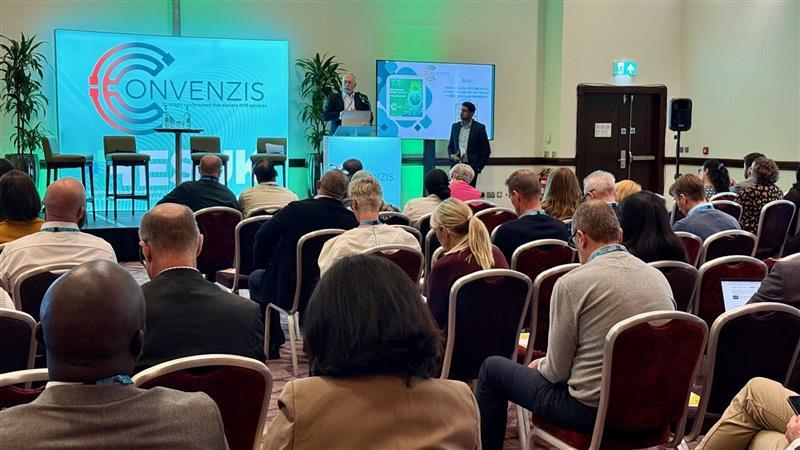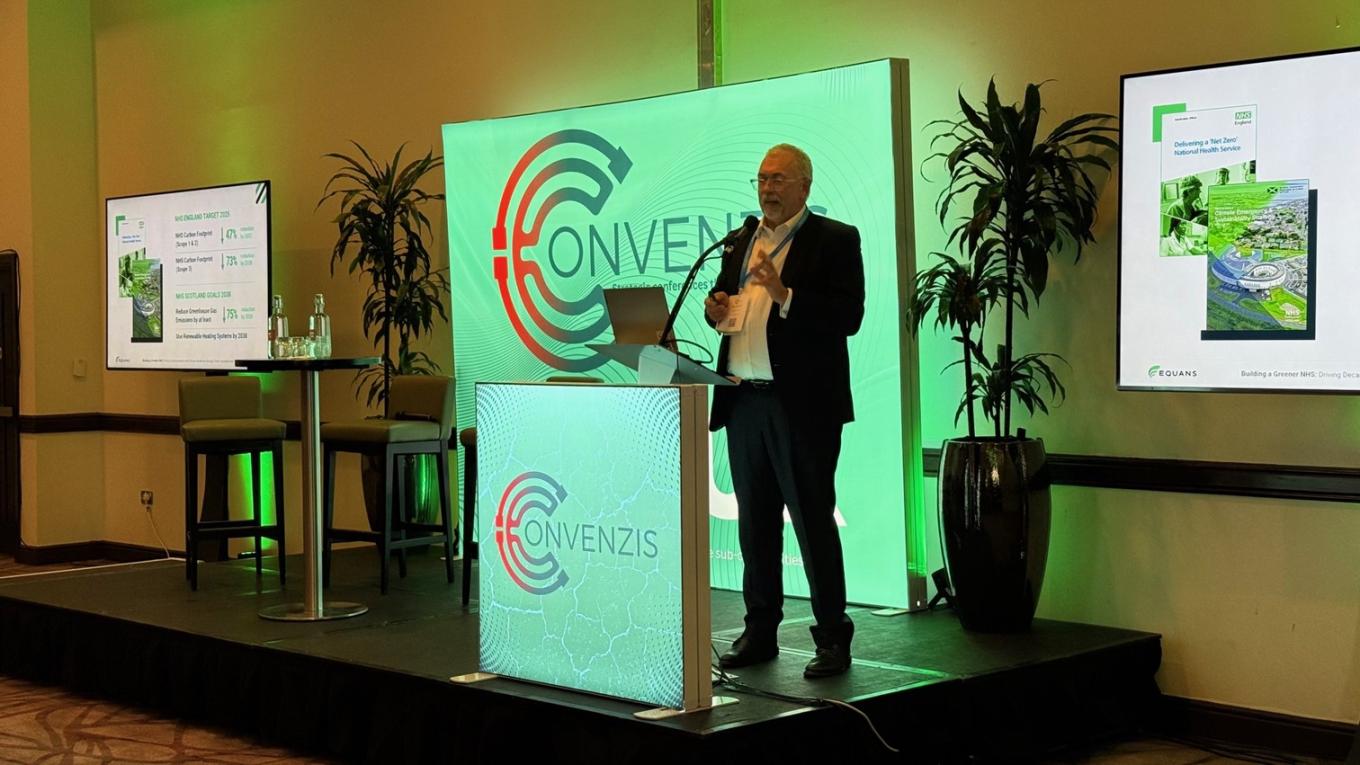Building a greener NHS: how decarbonisation and smart hospitals can transform healthcare estates
At the Convenzis NHS Sustainable Solutions Conference, our Regional Director for Healthcare, Simon Hayman, highlighted the pressing challenge facing NHS Trusts: how to decarbonise, adapt to climate change and improve the air quality for its communities, while managing ageing estates, complex PFI agreements, and limited budgets.
The NHS is leading the way with regards to its carbon emissions targets, but the message is clear - decarbonisation is no longer optional. It is essential to building resilient, affordable, and sustainable healthcare estates that can support patient needs now and in the future.
A proven five-stage roadmap
At Equans, we have developed a tried and tested five-stage decarbonisation roadmap that gives NHS Trusts a practical framework for action. It begins with data - understanding where emissions come from and how buildings are used. This data-driven approach enables smarter decision-making and highlights opportunities for immediate behaviour change, such as temperature management and building management system optimisation.
The roadmap then focuses on understanding contracts, engaging stakeholders, and prioritising interventions before moving into detailed, costed plans developed by our Carbon Shift team. These are broken down into ‘off-the-shelf' packages that can be quickly tailored for funding bids or contract variations. In a landscape where funding timelines are tight, this readiness is a real advantage.
Turning strategy into reality: case studies
Simon showcased real-world examples of how this roadmap is already helping Trusts decarbonise.
- All-electric hospitals: the UK’s first fully electric healthcare estate, Oriel eye hospital in London (opening 2027) and all-electric stand-alone diagnostic centre at West Middlesex University Hospital (2028) are being delivered by Bouygues UK, and here at Equans, we are delivering a full retrofit of Pontefract hospital PFI building (from 2028). These projects combine electrification of heating and hot water with thermal storage, solar power, and battery energy storage to create resilient, low-carbon estates enhancing the air quality for the patients and communities.
- District heating networks: In North West London, with PSDS funding withdrawn, Equans is working with its client on a PFI Hospital to access the Green Heat Network Fund (GHNF). By combining GHNF support with match funding, Trusts are able to proceed with low-carbon heat solutions despite a challenging funding environment.
- Smart hospitals: In Canada, we have already delivered 12 smart hospitals through Plan Group. In the UK, Oriel will become the first of its kind. Smart hospitals use digital innovation to optimise patient flow, reduce waiting times, and improve staff retention, while simultaneously lowering energy use and carbon emissions.
Overcoming funding barriers
One of the greatest challenges for Trusts remains access to capital funding. The closure of the Public Sector Decarbonisation Scheme (PSDS) has created gaps in financing. When opportunities do arise, the window for applying is often tight, meaning Trusts must be ready to act quickly.
Our decarbonisation offer is designed to meet this need. By preparing detailed business cases in advance, Trusts can move at pace when funding becomes available. Simon stressed the importance of early engagement with DHSC, so that bids are viewed favourably before they even land.
Adapting existing PFI contracts also creates opportunities. By integrating decarbonisation into lifecycle and asset management, Trusts can unlock long-term value and resilience without waiting for grant funding.
Beyond carbon: air quality and transport
Decarbonisation is not just about reducing emissions – it's also about creating healthier environments for patients and staff. The Royal College of Physicians has been clear, there is no safe level of air pollution, and action is urgently needed.
We are tackling this on multiple fronts. Alongside electrification of estates, we’re investing in sustainable transport solutions, from EVs to e-cargo bikes. With more than 1,400 vehicles now fully electric, and hospitals like Oriel set to be powered 100% by electricity, the link between decarbonisation and improved air quality is becoming stronger every day.
The promise of smart hospitals
A key theme of Simon’s session was the emergence of smart hospitals. These are not simply ‘smart buildings’ - they are connected, adaptive environments that put patient care at the centre of design.
Smart hospitals use technology to improve patient flow, space utilisation, and staff responsiveness. They allow Trusts to measure and improve KPIs such as patient satisfaction, waiting times, and staff productivity. Crucially, they also deliver measurable carbon savings and energy efficiencies.
Equans supports Trusts beyond the construction phase with a ‘soft landing’ approach, ensuring NHS teams are ready to use digital systems effectively. By aligning KPIs for both patient care and sustainability, smart hospitals represent a genuine step-change for the NHS.
Building climate resilience in healthcare estates
The journey to net zero in healthcare will not be easy. But with proven roadmaps, smart funding strategies, and digital innovation, it is possible to deliver estates that are efficient, resilient, and patient-focused.
We are committed to supporting NHS Trusts every step of the way, from data collection and behavioural change through to electrification, smart hospital delivery, and sustainable transport.
As Simon concluded, the NHS has an opportunity to lead the way in building climate resilience across the public sector. With the right partnerships and a commitment to innovation, a greener, healthier NHS is within reach.






